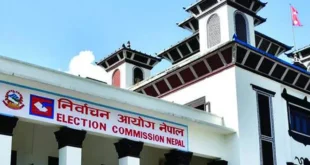 Dr. Seema Javed
Dr. Seema Javed
Soaring land prices, land grabs, and carbon schemes are creating an unprecedented ‘land squeeze’, threatening farmers and food production, reveals a comprehensive new report today by the International Panel of Experts on Sustainable Food Systems (IPES-Food).
Study exposes how land grabs in various forms have led to doubling land prices globally since 2008, and tripling in Central Europe, placing unprecedented strain on farmers and rural communities. Land around twice the size of Germany has been snatched up in transnational deals worldwide since 2000, with 87% of land grabs occurring in regions of high biodiversity. Pressures are exploding, including for carbon and biodiversity offsetting and clean fuel schemes.
India
- In India the top 10% own 45% of farmland
- 4 farmers every day take their lives in India due to the strain land squeeze causes
- In Asia, India is a hotspot for land degradation, with more than 70% of its arable land undergoing one or more forms of land degradation
- India’s internal biodiversity-based offsetting scheme has been found to be failing to halt deforestation, while incentivizing land concentration and forced land acquisitions
- India is on the forefront of land loss due to rising urbanisation and mega-infrastructure developments – with 2.3 million hectares estimated to have been lost to urban growth between 1955-2000, and steady ongoing losses to this day.
- In India, land acquisition per landowner has been capped since 1972 at 10 to 54 ha (or slightly higher in hills and deserts), depending on the state and land quality. However, this is now in the process of being dismantled.
- In Africa and Asia, large swathes of land are being appropriated through ‘special economic zones’ and ‘growth corridors’, in the context of expanding bilateral trade and investment agreements (including South-South deals).
Shalmali Guttal, IPES-Food expert, India, said: “We’re seeing soaring land prices, land grabs and out-of-control carbon schemes driving an unprecedented ‘land squeeze’. In this era of economic turmoil huge swathes of land are being snapped up like there’s no tomorrow by governments, corporations, and speculators. Land prices have doubled globally since 2008. Farmers, peasants, and Indigenous communities are being squeezed from all sides – losing their land, livelihoods, ancestral and cultural roots, and undermining their ability to produce food sustainably. They need to have real agency to shape land governance.”
General Scenario:
- Financial crashes, wars and food insecurity issues have led to a drastic increase in private investment interest in farmlands, severely contributing to the land squeeze. Private investors are buying up land and leasing it back to farmers for inflated prices.
- From 2005-2017, some USD 45 billion of institutional capital (e.g., from pension funds, insurance companies, and endowments) was invested in farmland.
- 45% of farmland investment in 2018 (roughly USD 14.8 trillion) went through pension funds and insurance companies.
- Agricultural investment funds increased 10 fold over 2005 – 2018
- Covid-19 and impacts on supply chains such as wars has led to a surge in investment in farmland since 2021. The Value of farmland has doubled since 2021.
- 42 sovereign wealth funds now hold investments in food and ag, accounting for 3% of their total investments.
- New financial derivatives instruments are wrapping up farmland investments into ever-more opaque and complex forms, opening the door to rampant speculation.
- Farmland financialization is driving negative impacts for small-scale food producers through steep and sustained land price inflation.
- In Brazil, the states experiencing the greatest investor speculation on farmland saw an average 200% increase in land prices from 2008-2017 – with prices soaring by 451% in Maranhão.
- These trends have contributed to a quadrupling of land prices in the US agricultural heartlands of Iowa (2002-2020),161 and 30 consecutive years of land price increases in Canada – which spiked by 12% in 2022 and another 8% in 2023.
The study exposes the alarming escalation of land grabbing in various forms, including through ‘green grabs’, opaque financial instruments and speculation, rapid resource extraction, and intensive export crop production.
Nettie Wiebe, IPES-Food expert, Canada, said:
“Imagine trying to start a farm when 70% of farmland is already controlled by just 1% of the largest farms – and when land prices have risen for 20 years in a row, like in North America. That’s the stark reality young farmers face today. Farmland is increasingly owned not by farmers but by speculators, pension funds, and big agribusinesses looking to cash in. Land prices have skyrocketed so high it’s becoming impossible to make a living from farming. This is reaching a tipping point – small and medium scale farming are simply being squeezed out.”
 Jubilee Post News & Views
Jubilee Post News & Views





